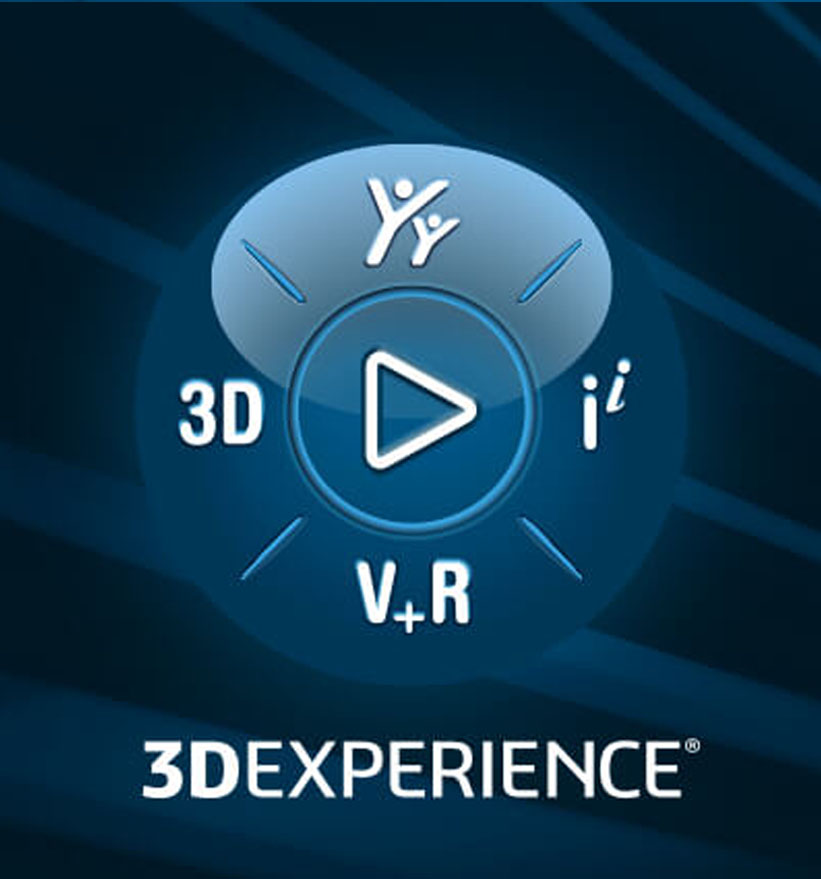In an era where technology is reshaping industries, Dassault Systèmes stands out as a vanguard in the field of software development and innovation. Spearheading this transformation is David Ziegler, VP of Industry, Aerospace, and Defense: his profound understanding of digital solutions makes Ziegler instrumental in driving forward the ambitious vision of the French company.
The company’s flagship offering, the 3DEXPERIENCE platform, embodies a revolutionary approach to handling product life cycles. This platform isn’t just a tool; it’s an immersive ecosystem that integrates 3D modeling, simulation, data management, and collaboration tools. It allows companies to design, simulate, and analyze products in a virtual environment, fostering innovation and efficiency.
At the heart of Dassault Systèmes’ innovation lies the concept of the «Digital Twin.» This concept, integral to the 3DEXPERIENCE platform, involves creating a highly detailed digital replica of a physical product or system. The digital twin serves as a mirror to the real world, allowing for simulation, analysis, and optimization of products and processes.
Right after the Paris Air Show, we had a chat with David Ziegler to delve into the challenges and advancements in integrating these technologies into various industries.
We discussed the impact of digitalization on the supply chain, especially in aerospace, and how Dassault Systèmes is navigating the complexities of AI integration while prioritizing data security and privacy. And to close, a big question: what is the limit for simulation and modeling? Can it cover all scenarios?
Aviacionline: I wanted to ask about your market coverage for new designs or new construction compared to the life support of a product. What is the percentage of work that implies life cycle support?
David Ziegler: In commercial aviation, you replace your filter per aircraft every 25 years. This means that the market, in terms of planning, is about 3.25 times the number produced. This gives an order of magnitude of the number of aircraft needing support compared to those produced. Another way to look at it is the ratio of the volume of business between production and support services, which is usually one-to-one.
Aviacionline: And in regions not limited to the atmosphere, like space projects, do you also provide support there?
Ziegler: Yes, we do. Sovereignty is a key part of our product nature and life. We provide key aspects of building and software support to the space industry. Our customers include major satellite manufacturers like Airbus and innovators like Interstellar Space, a small French company aiming to help mankind become an interplanetary species.

Aviacionline: Regarding the Sovereign Cloud that the 3D experience aims to provide, for instance, for the FCAS project, how do you ensure compatibility between software, hardware, and the protection of data, without losing collaboration capacity?
Ziegler: Sovereignty is about having control. For Europe, it’s about maintaining control over data in compliance with GDPR. Sovereign Cloud ensures complete ownership and management of data over its lifecycle. We were the first in France in 2019 to be labeled in this regard. It’s crucial to ensure data is not subject to foreign laws like the Cloud Act.
Aviacionline: How can Dassault Systèmes assist with the supply chain challenges, especially post-COVID?
Ziegler: The challenge is ramping manufacturing while maintaining quality, especially in aerospace. We provide virtual twin experiences of products, factories, and supply chains for forecasting, scenario planning, and identifying bottlenecks. We also de-risk production by simulating new machines and processes in the virtual world.

Aviacionline: The war in Ukraine has created a ramp-up in production and a renewed need for innovation in defense systems. How do you anticipate and manage this challenge?
Ziegler: The situation in Ukraine has indeed increased the need for defense capabilities. For instance, MBDA, a European missile manufacturer, has increased its output by 40%. We support them with their manufacturing execution system. We also focus on model-based system engineering to prepare for future threats, ensuring that our developments are compatible with both current and future defense systems.
Aviacionline: Regarding the workforce, how have you seen the industry’s needs change regarding education and training?
Ziegler: The workforce has evolved significantly. Automation has reduced the number of workers on the assembly line, while products have become more complex. Workers’ roles have shifted from shop floor workers to technicians, engineers, and innovators.
We focus on retaining knowledge from experienced workers and ensuring the workforce has the latest tools and technologies. We also face challenges in recruitment, competing with high-tech industries for talent.
Aviacionline: How do you deal with the challenge of modeling and simulation in terms of dealing with unanticipated factors?
Ziegler: The goal is not to eliminate physical tests but to decrease them. We work towards certification by analysis, improving the accuracy of our simulations. Our virtual twin experiences help us get as close as possible to reality. It’s about decreasing the gap between the virtual and the real world, and continually improving our simulation frameworks.







